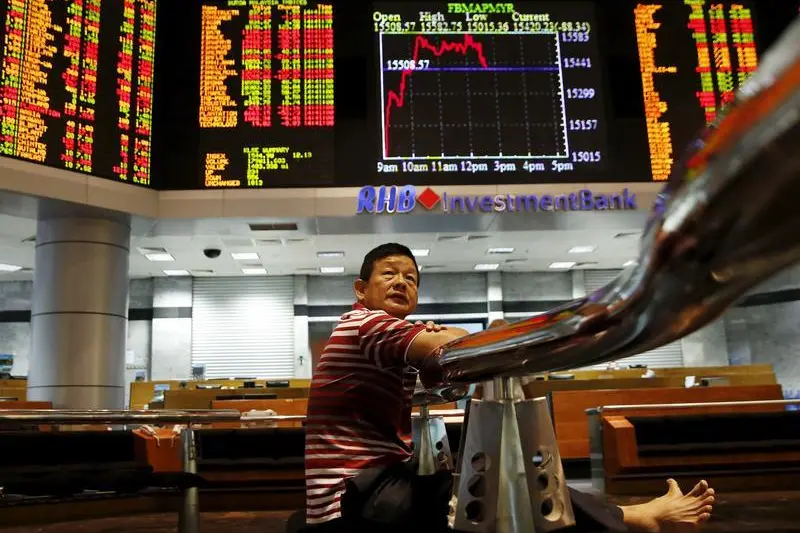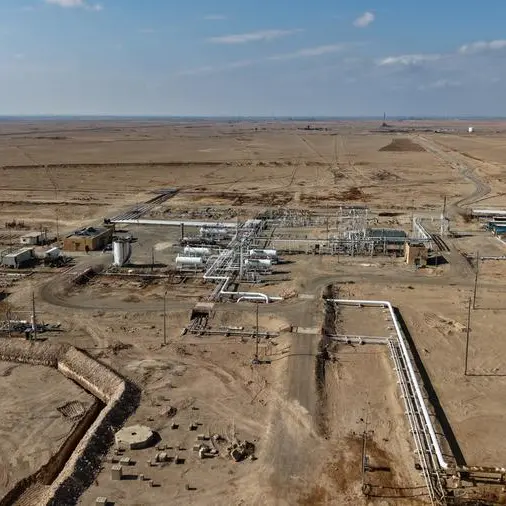PHOTO
KUALA LUMPUR, Jan 12 (Reuters) - Malaysia's securities regulator has proposed establishing a fund to invest in the country's Islamic finance funds and make them more attractive to institutional and foreign investors.
The southeast Asian country has carved out a leading role in Islamic finance. Malaysian asset managers hold 132.4 billion ringgit ($30 billion) worth of sharia-compliant assets - among the largest in the world and comparable to Saudi Arabia - but they have often been overshadowed by a thriving market for Islamic bonds, or sukuk, which are often bought directly by investors.
The proposed fund, part of an Islamic fund and wealth management blueprint launched on Thursday by the Securities Commission, would invest in multi-currency Islamic investment products managed by Malaysian-based asset managers and including equity products, to increase their size and make them more attractive to investors.
The Securities Commission gave no details on the size or timeframe for the launch of its proposed fund, or who would run it and where the money would come from, but a fund acting as a seeder or incubator of Islamic funds would be a first in the industry.
"The Securities Commission is still in discussion with various stakeholders. No decision has been made on who will spearhead the fund yet," a spokeswoman for the Commission said.
The fund could address challenges that Islamic funds have faced in attracting significant institutional money and foreign investors, the Securities Commission said in the five-year blueprint.
"The fund is aimed at accelerating efforts to build the critical mass, establishing channels for international distribution, and supporting innovation and developing market infrastructure for alternative strategies," the regulator said.
Investors from the Middle East are the big investors in Islamic finance but can find Malaysian-ringitt funds less attractive as their portfolios are denominated in U.S. dollars or Gulf currencies that are pegged to the dollar.
Few Malaysian-managed funds are offered overseas but this is starting to change: CIMB Islamic Asset Management, for example, this week launched an Ireland-domiciled dollar-denominated sukuk fund.
Malaysia's Employees Provident Fund is launching a $25 billion sharia-compliant retirement fund this month, which could serve as a boon to asset managers in the field.
Smaller fund managers, however, have cast doubt on whether they would manage any of that money, saying the mandates will probably go to a handful of more established players.
($1 = 4.4560 ringgit)
(Reporting by Liz Lee and Bernardo Vizcaino; Editing by Susan Fenton) ((liz.lee@thomsonreuters.com; +60323338039; Reuters Messaging: liz.lee.thomsonreuters.com@reuters.net))
The southeast Asian country has carved out a leading role in Islamic finance. Malaysian asset managers hold 132.4 billion ringgit ($30 billion) worth of sharia-compliant assets - among the largest in the world and comparable to Saudi Arabia - but they have often been overshadowed by a thriving market for Islamic bonds, or sukuk, which are often bought directly by investors.
The proposed fund, part of an Islamic fund and wealth management blueprint launched on Thursday by the Securities Commission, would invest in multi-currency Islamic investment products managed by Malaysian-based asset managers and including equity products, to increase their size and make them more attractive to investors.
The Securities Commission gave no details on the size or timeframe for the launch of its proposed fund, or who would run it and where the money would come from, but a fund acting as a seeder or incubator of Islamic funds would be a first in the industry.
"The Securities Commission is still in discussion with various stakeholders. No decision has been made on who will spearhead the fund yet," a spokeswoman for the Commission said.
The fund could address challenges that Islamic funds have faced in attracting significant institutional money and foreign investors, the Securities Commission said in the five-year blueprint.
"The fund is aimed at accelerating efforts to build the critical mass, establishing channels for international distribution, and supporting innovation and developing market infrastructure for alternative strategies," the regulator said.
Investors from the Middle East are the big investors in Islamic finance but can find Malaysian-ringitt funds less attractive as their portfolios are denominated in U.S. dollars or Gulf currencies that are pegged to the dollar.
Few Malaysian-managed funds are offered overseas but this is starting to change: CIMB Islamic Asset Management, for example, this week launched an Ireland-domiciled dollar-denominated sukuk fund.
Malaysia's Employees Provident Fund is launching a $25 billion sharia-compliant retirement fund this month, which could serve as a boon to asset managers in the field.
Smaller fund managers, however, have cast doubt on whether they would manage any of that money, saying the mandates will probably go to a handful of more established players.
($1 = 4.4560 ringgit)
(Reporting by Liz Lee and Bernardo Vizcaino; Editing by Susan Fenton) ((liz.lee@thomsonreuters.com; +60323338039; Reuters Messaging: liz.lee.thomsonreuters.com@reuters.net))





















